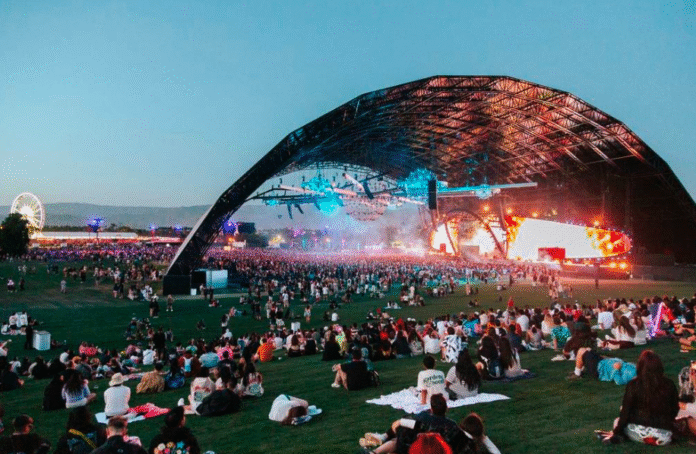By Manha Masood
The Coachella Valley Music and Arts Festival, widely known as Coachella, is one of the most prominent and influential music festivals in the world. Held annually every April in Indio, California, it attracts hundreds of thousands of attendees and hosts performances by artists across genres, ranging from rock and pop to hip-hop and electronic music. However, its origins were far more experimental and uncertain than its current global prominence would show.
Coachella’s origin traces back to 1993, when the rock band Pearl Jam staged a concert at the Empire Polo Club in Indio. The band, protesting Ticketmaster’s control over major venues, sought out an independent location and drew a large audience to the desert. The success of that performance demonstrated the potential of the Coachella Valley as a viable site for large-scale music events, sparking the idea for a full fledged festival.
In 1999, promoters Paul Tollett and Rick Van Santen, co-founders of the company Goldenvoice, organized the first official Coachella festival. Held over two days in October, the lineup included artists such as Beck, Rage Against the Machine, and Tool. Although the event received critical praise, it suffered significant financial losses due to low ticket sales, forcing organizers to cancel the festival the following year.
The festival returned in 2001 as a one day event and slowly began to build a dedicated following. By 2003, it was expanding both in attendance and reputation, drawing major acts and increasing media coverage. Performances by Radiohead, Daft Punk, and Prince in the mid 2000s became iconic moments that defined Coachella as a premier destination for live music. The festival expanded to three days in 2007 and, due to overwhelming demand, to two consecutive weekends in 2012 with identical lineups.
Over time, Coachella evolved into more than just a music festival. Its large scale art installations, fashion culture, and celebrity presence have made it a cultural phenomenon. The festival has also had a significant economic impact, contributing hundreds of millions of dollars annually to the Coachella Valley economy. It has become a platform not only for popular music but also for visual artists, designers, and creative performers worldwide.
In recent years, Coachella has embraced a broader diversity of genres and international artists, with performances by Latin, K-pop, and African acts gaining prominence. The festival has also taken steps toward sustainability, including waste reduction and environmental awareness campaigns. From its uncertain beginnings to its current global significance, the history of Coachella reflects not only the evolution of the music industry but also the changing landscape of cultural expression in the 21st century.

